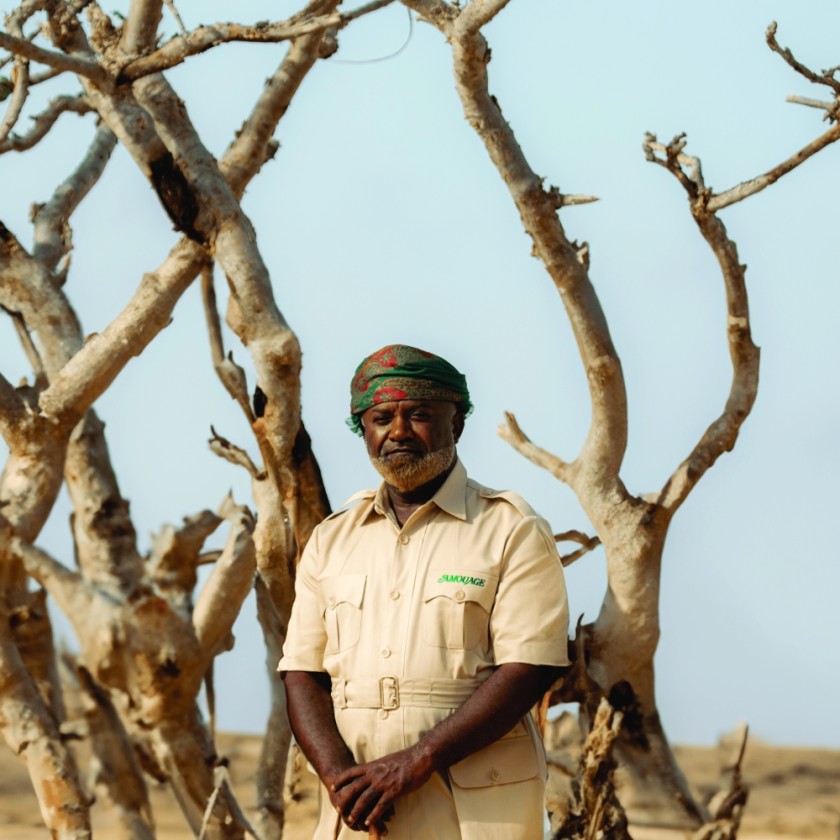
Balancing Tradition and Innovation in Oman's Business Environment
What's the Tradition in Omani Business?
Tradition in Omani business is deeply rooted in the country's rich cultural history and social values. It encompasses the practices, customs, and beliefs that have shaped the way business is conducted in Oman for generations. For many Omani entrepreneurs, tradition is a guiding principle that fosters trust, integrity, and respect in the marketplace. Here are some fundamental aspects of tradition in Omani business:
- Personal Relationships: Business in Oman often relies on strong, personal relationships. Building trust is essential, and many deals are based on mutual respect and long-standing connections rather than solely on contracts.
- Family Influence: Many Omani businesses are family-owned or operate within families. This creates a sense of loyalty, with successors upholding the family legacy and maintaining traditional practices while navigating modern business waters.
- Cultural Values: Islamic principles significantly influence Omani business practices. Values such as honesty, fairness, and respect for others are crucial and directly affect decision-making processes.
These traditional elements create a stable environment where businesses can thrive based on established norms and values.
What does Innovation in Omani Business include?
In contrast, innovation in Omani business refers to the implementation of new ideas, processes, and technologies to improve efficiency, productivity, and competitiveness. As Oman seeks to diversify its economy away from oil dependence, innovation is increasingly becoming a focal point for growth. Key components of innovation in the Omani context include:
- Technology Adoption: Embracing digital tools and platforms helps businesses streamline operations, enhance customer engagement, and reduce costs. This includes utilizing e-commerce and digital marketing strategies to reach broader markets.
- New Business Models: Organizations are encouraged to adapt and develop unique business models to address contemporary market needs. This could involve shifts towards sustainable practices or service-oriented offerings that cater to changing consumer preferences.
- Collaboration with Global Entities: By partnering with international organizations or startups, Omani businesses can acquire new skills and insights, fostering a culture of innovation.
The interplay between tradition and innovation creates a dynamic business environment in Oman. Many entrepreneurs recognize the necessity of integrating both approaches to achieve long-term success. The challenge lies in valuing traditional practices while simultaneously embracing the advancements that innovation can bring. In summary, tradition and innovation in the Omani business environment represent two sides of the same coin. Tradition lays the groundwork and fosters relationships, while innovation drives development and prepares businesses for the future. As Oman continues to evolve, finding a balance between these two elements will be vital for sustained growth.

Embracing Tradition in Omani Business
Importance of Upholding Traditional Values
In the vibrant landscape of Oman's business environment, upholding traditional values is not merely a nod to the past; it is a cornerstone of sustainable growth and success. Traditional values serve as a guiding framework that shapes ethical business practices and builds trust within the local community. The importance of maintaining these values cannot be overstated:
- Trust Building: In Oman, relationships often take precedence over transactional interactions. When businesses adhere to traditional values, they foster trust among partners and clients. This trust often leads to long-lasting business associations.
- Community Integration: Traditionally rooted businesses tend to be more integrated within their communities. By respecting cultural practices, they not only earn community support but also contribute to local economic development.
- Cultural Identity: Upholding tradition helps preserve Omani cultural identity. As businesses flourish while respecting cultural elements, they also promote local customs and heritage, which can be appealing to both locals and tourists alike.
In essence, maintaining traditional values isn’t just good ethics; it’s good business.
Strategies to Preserve Tradition
While the importance of traditional values is clear, implementing strategies to preserve them in an evolving business world is equally crucial. Here are some practical approaches that Omani businesses can adopt:
- Employee Education and Training: Incorporating cultural education into training programs helps employees appreciate the importance of tradition. By understanding their heritage, staff can better reflect these values in their operations.
- Community Engagement Initiatives: Actively participating in community events or sponsoring local festivals allows businesses to demonstrate their commitment to tradition. For instance, a business that supports local artisans not only promotes their craft but also reinforces its dedication to preserving cultural heritage.
- Mentorship Programs: Establishing mentorship programs wherein seasoned entrepreneurs share their knowledge and experiences with younger generations can ensure that traditional business practices are passed down. This helps maintain the ethos of traditional values while nurturing innovation.
- Adopting Sustainable Practices: Businesses can honor tradition by implementing sustainable practices that respect both the environment and cultural heritage. By promoting eco-friendly methods that are rooted in tradition, they can gather community support and enhance their brand image.
- Storytelling Marketing: Incorporating traditional narratives and cultural stories into branding can enhance a company's image. By connecting modern marketing with traditional tales, businesses create a unique identity that resonates with consumers.
In conclusion, embracing tradition in Oman's business environment is not just a way to preserve the past; it is a pathway to future success. By recognizing the significance of traditional values and effectively implementing strategies to uphold them, Omani businesses can thrive in a way that respects their rich heritage while navigating the modern world. Balancing the two is key to establishing a legacy that resonates both locally and globally.

Embracing Innovation in Omani Business
Benefits of Innovation in a Traditional Environment
As businesses in Oman navigate the intricate balance between tradition and modernity, embracing innovation can yield significant benefits in today’s fast-paced market. When innovation is introduced in a traditional environment, the potential for growth and development expands exponentially. One notable benefit is the enhancement of operational efficiency. By adopting new technologies and processes, businesses can streamline their operations, reduce costs, and improve service delivery. For example, consider a traditional Omani coffee shop that implements an online ordering system. This not only modernizes customer interactions but also speeds up service, catering to a tech-savvy clientele. Here are additional advantages innovation brings to traditional environments:
- Increased Competitiveness: In a global market, businesses that innovate can differentiate themselves from competitors. By offering unique products or services, they can attract a broader customer base.
- Adaptability to Change: Innovation fosters a culture of adaptability. Businesses that embrace change are better equipped to respond to market shifts, consumer preferences, and economic challenges.
- Attraction of Investment: Investors are often more inclined to support businesses that showcase innovative practices. Demonstrating a commitment to modernization indicates long-term viability and growth potential.
By leveraging innovation within a framework of tradition, Omani businesses can pave the way for a prosperous future.
Implementing Innovative Practices
Implementing innovative practices does not necessitate a complete overhaul of existing systems. In fact, gradual integration of new approaches can lead to significant impact. Here are several practical steps that Omani businesses can take to embrace innovation effectively:
- Encouraging a Culture of Creativity: Promoting an open environment where employees can share ideas fosters a culture of innovation. Regular brainstorming sessions or innovation workshops can be platforms for employees to contribute suggestions.
- Investing in Technology: Businesses should consider investing in digital tools that enhance customer engagement and operational efficiency. For instance, adopting social media marketing strategies can broaden outreach and strengthen connections with customers.
- Collaborating with Startups: Engaging with startups can expose traditional businesses to disruptive ideas and cutting-edge technologies. Buddying up with a tech startup, for example, can lead to innovative solutions that enhance services.
- Upskilling Employees: Offering training programs focused on new technologies and methodologies is vital. Employees with improved skills can adapt to varied challenges and contribute innovative ideas to workplace practices.
- Piloting New Initiatives: Before fully implementing any innovative practice, conducting pilot programs can help assess feasibility and effectiveness. Insights gained can assist in refining strategies before a broader rollout.
In conclusion, embracing innovation in the landscape of Oman's traditional business environment not only opens doors to new opportunities but is essential for long-term sustainability. By implementing innovative practices thoughtfully, Omani businesses can honor their rich heritage while progressing confidently toward a thriving future. Both tradition and innovation play critical roles in shaping a well-rounded, competitive business that resonates with customers of all walks of life.
Finding the Balance
Challenges Faced in Balancing Tradition and Innovation
As Omani businesses endeavor to find the equilibrium between tradition and innovation, they encounter a range of challenges that can complicate this process. Striking the right balance is essential for not only survival but also for thriving in a competitive landscape. One of the primary obstacles is the resistance to change, which is often rooted in deeply-held cultural values. Many businesses may hesitate to adopt modern practices, fearing that they could dilute their heritage or alienate loyal customers. For instance, an established family-run textile shop may be wary of using digital marketing tools, preferring the traditional methods that have worked for them for generations. Another challenge is resource allocation. Investing in innovative technologies can be expensive, and smaller businesses may struggle to find the funds or expertise necessary to implement these changes. This is especially true in a market where traditional practices often yield stable, if not spectacular, returns. Additionally, there’s often a knowledge gap between generations. Younger entrepreneurs may be well-versed in modern technology but lack an understanding of their cultural heritage. Conversely, older generations might have extensive wisdom in traditional practices, yet they may be hesitant to adapt to new trends. This disconnect can lead to friction within familial or organizational structures. Finally, balancing different customer expectations can also pose difficulties. As the market diversifies, businesses must navigate the complex landscape of traditionalists and modern consumers, each with their distinct preferences.
Successful Case Studies in Oman
Despite these challenges, several Omani businesses have effectively navigated the delicate balance between tradition and innovation, setting commendable examples for others. One notable case is Omani Majan Glass, which has successfully combined traditional craftsmanship with modern design. By preserving the art of glassblowing while introducing contemporary designs, Majan Glass appeals to both local and international markets. Their ability to honor traditional techniques while embracing innovation has earned them a unique position in the marketplace. Another success story is Muscat’s Omani Flower Company, which integrates traditional floral arrangements with innovative delivery services. By adopting an online ordering platform while maintaining authentic Omani designs, they attract a modern clientele without compromising their cultural essence. This blend not only enhances their reach but also fosters appreciation for Omani culture among a diverse audience. Lastly, the Sultanate of Oman’s Authority for Partnership for Development has initiated several programs that champion innovation while respecting tradition. By providing grants and support to businesses willing to explore innovative solutions, they encourage sustainable growth that keeps cultural values at the forefront. In conclusion, while challenges in balancing tradition and innovation are inherent, Omani businesses can draw inspiration from successful case studies. By embracing a thoughtful approach towards integration, they can thrive in a landscape that honors both their rich heritage and the exciting possibilities of the future. The ability to adapt while remaining anchored in tradition is key to navigating the evolving business environment.

Impact on Business Growth
Effects of Tradition vs. Innovation on Business Development
The interplay between tradition and innovation significantly shapes the trajectory of business development in Oman. While tradition offers a foundation of trust and reliability, innovation drives progress and competitiveness. Understanding the effects of these two elements is crucial for businesses aiming to grow and adapt in a rapidly changing market. Tradition provides:
- Stability: Businesses rooted in tradition often enjoy a loyal customer base that appreciates their consistent practices and values. This loyalty can provide stability, especially in challenging economic times.
- Cultural Relevance: Companies that respect and incorporate traditional values into their offerings are more likely to resonate with local customers. For example, a family-owned restaurant that serves traditional Omani dishes can attract patrons who cherish their culinary heritage.
However, relying solely on tradition may lead to stagnation. Businesses that do not innovate risk losing their competitive edge. On the other hand, innovation offers:
- Growth Opportunities: By embracing new technologies and practices, companies can expand their market reach and enhance efficiency. For instance, an Omani handicraft business that utilizes e-commerce can capture customers globally, far beyond traditional brick-and-mortar sales.
- Responding to Market Demands: Innovation allows businesses to adapt quickly to changing consumer preferences. Companies that actively seek to understand and implement new trends—such as eco-friendly packaging—are better positioned for success.
Finding the right balance between tradition and innovation is pivotal. Companies can face significant challenges if they veer too far in one direction, potentially alienating customers or missing out on market advancements.
Leveraging Tradition and Innovation for Success
To foster business growth, Omani entrepreneurs can strategically leverage both tradition and innovation. Here are some effective approaches:
- Integrating Innovative Ideas into Traditional Practices: Businesses can innovate within the framework of traditional values. For example, an Omani jewelry store could incorporate modern design techniques while using traditional crafting methods, ensuring their products remain true to their heritage while appealing to contemporary tastes.
- Storytelling and Branding: Crafting a compelling narrative around the brand that highlights both tradition and innovation can create a strong connection with customers. Using storytelling in marketing—a family’s legacy of craftsmanship combined with cutting-edge designs—draws in patrons who appreciate authenticity coupled with modernity.
- Collaboration: Partnering with tech startups or influencers who align with traditional values can introduce fresh ideas. Such collaborations can enhance market presence while simultaneously retaining cultural significance. For instance, local artists teaming up with tech-savvy marketers can create social media campaigns that celebrate Omani culture.
- Continuous Learning: Businesses should prioritize ongoing education and training for employees on new technologies, market trends, and cultural heritage. By investing in their teams, businesses can encourage a culture where both tradition and innovation thrive.
In conclusion, the impact of tradition and innovation on business growth in Oman can be profound. By understanding and leveraging these elements effectively, entrepreneurs can create a harmonious blend that respects the past while boldly stepping into the future, fostering sustainable and successful enterprises. Both tradition and innovation are essential ingredients for realizing the full potential of Oman's dynamic business landscape.
Future Trends in Oman's Business Landscape
Forecasting the Evolution of Tradition and Innovation
As Oman stands on the cusp of significant economic transformation, the future trends in its business landscape increasingly reflect a symbiotic relationship between tradition and innovation. The ongoing journey indicates that while tradition will remain a pivotal component of Omani identity, innovation will be the driving force propelling businesses forward. Traditionally rooted companies will begin to adapt by gradually integrating modern methodologies into their practices while still preserving the essence of what makes them unique. For instance, Omani craftspeople may continue utilizing time-honored techniques but will likely adopt modern design aesthetics to appeal to newer generations. This ongoing evolution will likely look like:
- Blending Traditional & Modern Designs: An Omani pottery business that applies traditional glazing techniques may incorporate contemporary patterns, attracting both local customers and global art aficionados.
- Cultural Storytelling in Marketing: Businesses will enhance their storytelling efforts to embody both innovation and tradition. By showcasing their heritage while highlighting how they adapt to contemporary demands, companies can engage with a broader audience.
Moreover, consumer expectations will increasingly demand that businesses not only respect tradition but also demonstrate innovation in customer experiences. Companies that actively engage with their customers through personalized services and cutting-edge solutions will thrive in this evolving environment.
Emerging Technologies in Omani Business Sector
The adoption of emerging technologies is crucial in shaping the future landscape of Omani businesses. As Oman seeks to diversify its economy, various technological advancements will play a significant role:
- E-Commerce Expansion: With the rise of online shopping, local businesses will increasingly leverage e-commerce platforms. For example, artisans creating traditional Omani crafts can utilize online marketplaces to reach global customers, showcasing their products while sharing their cultural narratives.
- Artificial Intelligence (AI): AI technology can assist businesses in optimizing operations, forecasting market trends, and personalizing customer interactions. A local travel agency, for instance, could employ AI-driven chatbots for enhanced customer service, offering 24/7 responses to inquiries while tailoring offerings based on user preferences.
- Blockchain Technology: As transparency and authenticity become ever more important to consumers, many businesses in Oman may start adopting blockchain for supply chain management. This approach ensures that traditional products like date palm syrup or handmade carpets are traceable, enhancing consumers’ trust.
- Sustainable Practices: Emerging technologies will facilitate eco-friendly practices, allowing businesses to explore alternatives like biodegradable packaging or renewable energy solutions. For instance, a local food manufacturer might implement energy-efficient production methods, directly resonating with environmentally conscious consumers.
- Remote Work Solutions: Remote working technology will likely become more prevalent, allowing businesses to tap into a broader talent pool while respecting the work-life balance valued in Omani culture.
In conclusion, the future of Oman's business landscape holds exciting possibilities as tradition and innovation evolve together. By embracing emerging technologies while honoring cultural heritage, Omani entrepreneurs can carve out a niche that not only respects the past but also steers confidently into a promising future. Balancing these elements will be essential, ensuring that as Oman progresses, it retains the values that make it unique.



0 Comments